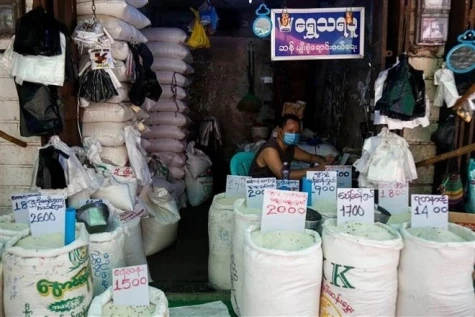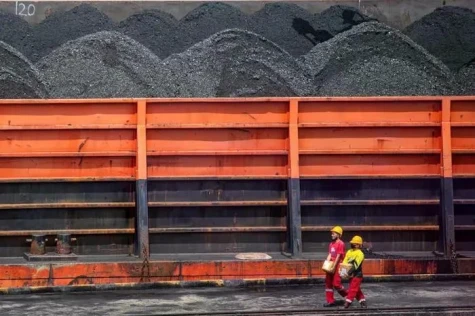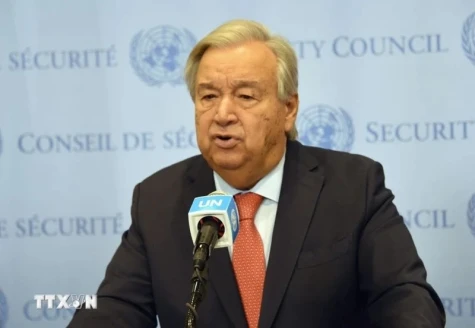Despite facing consecutive shocks over the past year, the global economy has remained resilient and avoided the risk of widespread recession. As a result, short-term global economic growth is forecasted to stabilise, though it will remain low due to persistent destabilising factors.

The report recently published by the UN forecasts global economic growth in 2025 to remain at 2.8%, unchanged from 2024. Global growth in 2026 is expected to reach 2.9%, still lower than the average growth rate of 3.2% during the 2010-2019 period, before the COVID-19 pandemic emerged.
According to the World Economic Situation and Prospects 2025 Report, the figures mentioned above indicate that the global economy continues to face significant challenges.
The UN report predicts that US economic growth will slow down in 2025 due to a weakening labour market and reduced public spending, but it is expected to experience a slight recovery in 2026. Meanwhile, Europe's economy is gradually recovering thanks to lower inflation and an improved labour market. However, geopolitical instability, weak productivity growth, and an ageing population will limit the continent's efforts to revitalise its economy. East Asia is projected to maintain growth momentum, primarily driven by private consumption. South Asia is expected to continue as the fastest-growing region, thanks to India's impressive economic development. Africa's economic growth will improve modestly, driven by the recovery of key economies like Egypt, Nigeria, and South Africa. However, conflicts, high public debt, and climate-related challenges continue to weigh on the region's prospects.
Inflation in the past year has been somewhat contained due to the "belt-tightening" policies implemented by many countries. Global inflation in 2025 is forecasted to continue its downward trend, reaching 3.4%. However, many developing countries are still facing persistent inflation pressures, with some experiencing double-digit inflation rates. Food price inflation remains an urgent issue for nearly half of developing nations. This exacerbates food insecurity, particularly in low-income countries that are already struggling with conflict, economic instability, and severe weather events.
The UN report warns that prolonged food price inflation, coupled with slow growth, could push millions more people into poverty. Additionally, the burden of public debt and limited access to international financial resources continue to hinder the recovery process and the progress of implementing the Sustainable Development Goals (SDGs) in countries of the Global South.
The International Monetary Fund (IMF) shares a similar outlook with the UN report on the global economic situation in the near future. The IMF also forecasts global growth to stabilise and inflation to continue decreasing.
However, IMF Managing Director Kristalina Georgieva notes that the global economic growth outlook remains at its lowest level in many decades. According to Georgieva, most countries need to reduce expenditures after heavy spending during the pandemic, while also adopting measures to promote growth in a sustainable manner.
In the context of globalisation and international integration, the growing interconnection between economies means that the impact on each link in the chain will affect the global supply chain.
Emphasising this point, UN Secretary-General Antonio Guterres affirmed that every country is a part of the solution to global crises.
He stated that the United Nations member states adopted the Pact for the Future in September 2024. The pact includes ambitious commitments aimed at reforming the international financial system, enhancing the lending capacity of multilateral development banks, improving access to funding for development and climate change mitigation, etc.
The UN Secretary-General called for the roadmap to be followed and emphasised that countries must fulfil their commitments to steer the world towards a prosperous and sustainable future for all. With the global situation still unpredictable, multilateral cooperation and cautious policies will play a crucial role in ensuring stable growth and realising the SDGs.
NDO






























